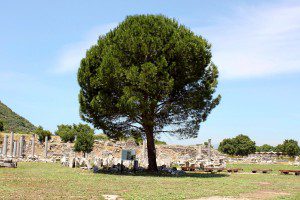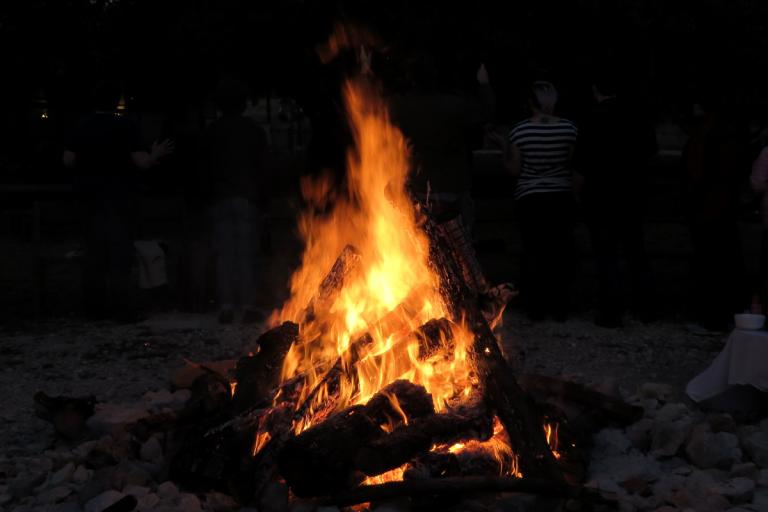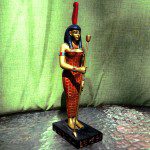 I’m a Druid, not a Celtic reconstructionist. I value good scholarship but I’m not obsessed with it. I’ve been an avid reader all my life and I have a nice collection of books, but there are no books on my altar.
I’m a Druid, not a Celtic reconstructionist. I value good scholarship but I’m not obsessed with it. I’ve been an avid reader all my life and I have a nice collection of books, but there are no books on my altar.
More importantly, no amount of reading and study was enough to exorcise the tentacles of fundamentalism from my soul. That took first-hand experience of the Gods.
So it’s been disappointing to see some Pagans disparaging direct experience and touting the primacy of lore. This has been going on for a long time, but I seem to be seeing more of it in recent weeks. It isn’t just a question of a taste for books vs. a taste for experience. Rather, this issue is complicating our efforts to establish deep, meaningful, authentic polytheist practices.
Lore is “a body of traditions and knowledge on a subject or held by a particular group.” But when used in a Pagan context, “lore” almost always means the written word – the stories our ancestors told about their lives and their Gods. These stories and the historical documents from their era are extremely valuable in our efforts to connect with our ancient ancestors, to learn their practices and their virtues, and to learn how to approach the Gods who were a part of their lives.
But as valuable as lore is, it isn’t the only way we know about the Gods.
The information that comes from our direct experience of the Gods, ancestors, and spirits is often called UPG – Unverified Personal Gnosis. When done right, labeling such information as UPG acknowledges the uncertainty of religious experience. What we experience is undeniably real, but our interpretations of those experiences are subject to error. We cannot expect our subjective experiences to be authoritative for others who didn’t share the experience.
However, if a God is moving in the world, others are likely to have similar experiences and come to similar conclusions – the new information becomes shared personal gnosis. If enough people share the gnosis and if it proves meaningful and helpful, eventually it becomes verified gnosis and becomes an addition to the lore.
That’s fine in theory, but in practice UPG is often dismissed out of hand, particularly if it varies from the lore in any way.
Privileging lore and dismissing experience is the direct result of living in a Protestant-dominated culture.
If you want to win an argument in a fundamentalist Christian church, start with “the Bible says…” No appeal to evidence, reason, or philosophy can defeat an appeal to the authority of the Bible. The Bible is presumed to be divinely inspired and inerrant. This is an extension of Martin Luther’s Sola Scriptura – the Bible isn’t just one authority, it’s the supreme authority. Pagans and polytheists may have moved on from Christianity, but these Christian concepts are still very active in our subconscious.
Our preference for the written word extends beyond religion. Memories are fallible and interpretations are subjective, but the written word remains constant. It’s why Hammurabi carved his laws onto stone tablets and why our contracts are written and signed in permanent ink. But while absolute consistency is a good thing with contracts, it can send religious traditions into stagnancy and irrelevance.
Then there’s religious progression and anticipation – the idea that as animals evolved from lower to higher (a rather arrogant presumption) so has religion evolved from animism to polytheism to monotheism. There’s a lot of this in the work of the early Revival Druids, who presumed that the Anglican Christianity of their time was the penultimate religion and therefore the ancient Druids must have been their “forerunners.”
In a recent Twitter conversation, philosopher and theologian Edward Butler discussed these ideas and their effect on contemporary polytheism.
The “anticipation” thesis seems also to have informed the view that religion necessarily “evolves,” polytheism into monotheism.
It’s very insidious, as it leads us to see sophistication as decline in the ancient traditions.
the very notion of change in our traditions comes to be feared, because change would lead to monotheism…
and so we come to see ourselves as merely preserving static traditions as best we can, rather than engaging the living Gods.
We may be polytheist fish, but we are swimming in a monotheist ocean.
Our Protestant overculture also tells us that people who talk to Gods are crazy. Sometimes this refers to the fact that mystics and God-speakers have a rather different take on reality than the mainstream. But it also refers to the fact that some people who claim to speak with Gods are genuinely mentally ill.
This makes discernment a messy affair – how do we separate the true messages from the Gods from those who are controlled by disease… and from those who claim to speak with Gods to pump up their own egos? It’s much easier to just quote the lore and smack them down. Unfortunately, that also means we ignore genuine wisdom from the Gods, and we make it less likely that we ourselves will experience Them first hand.
Where do you think the lore came from in the first place? Unless you’re a non-theist who thinks the stories of our ancestors were completely and entirely made up, they came from people who had first-hand experiences of the Gods. The lore began as someone’s UPG.
There’s one more factor involved here – it’s a lot easier to ignore a book than to ignore a deity who tells you to do something uncomfortable.
We need both lore and UPG. We need the lore to connect us to our ancestors and their wisdom. We need the lore to provide guidelines for interpreting our experiences.
We need UPG to maintain a living tradition. We need UPG to remind us that our Gods aren’t abstract principles – they’re real, distinct, living beings with their own goals, desires, personalities, and areas of responsibility.
A religion with real Gods is messy, unpredictable, and scary. As much as I’m fond of order, I wouldn’t have it any other way.














